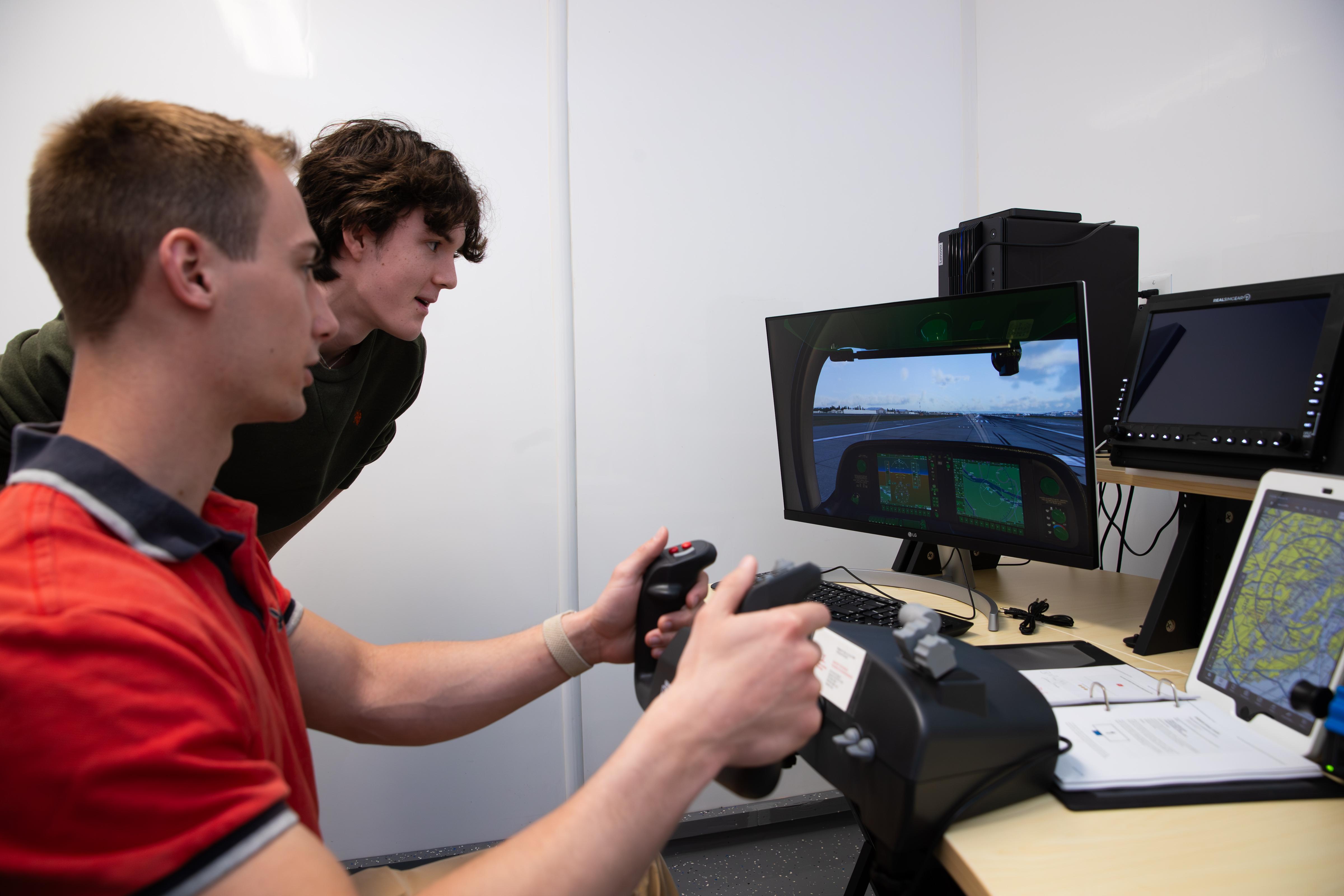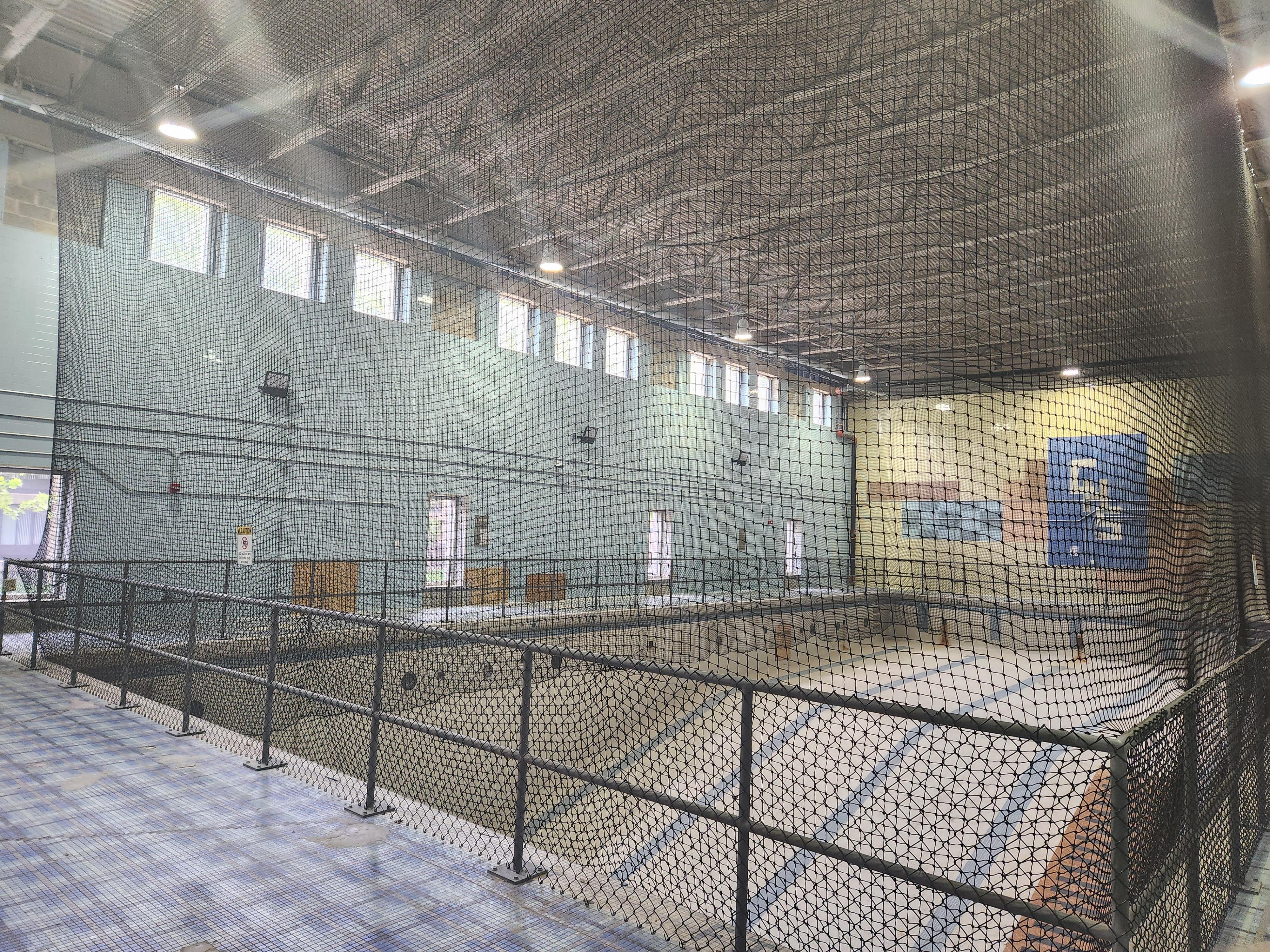U.S. Coast Guard Flotilla Among Three New Ways for Highlanders to Earn Wings

Several new aeronautical opportunities will provide hands-on training for New Jersey Institute of Technology students who look to the sky.
Starting this fall, NJIT will establish an official group of the U.S. Coast Guard Auxiliary University Program, known as a flotilla. It will meet at Caldwell Airport and it's only the fifth air station out of 79 flotillas in the Auxiliary's first district, southern region, which covers metropolitan New York and beyond.
Other campus initiatives are already underway, including construction of a flight simulation laboratory and development of a drone testing field.
Whether it's traditional training in a Cessna or learning to program AI-powered drones that decide their own paths, the initiatives signal an expanded civilian direction for flight-minded students. Until now, the only options were the Flylanders radio-control team and U.S. Air Force ROTC unit, with the latter requiring a post-collegiate commitment.
"As a polytechnic university, it is important that we offer our students a wide breadth of opportunities to investigate and learn," said NJIT's Dan Brateris, executive director for experiential learning. "Having access to state-of-the-art technologies in a wide range of sectors, including aviation, drones and AI, helps our students discover areas of personal interest and passion."
Coast Guard Flotilla
Airborne flotillas are vital to the Coast Guard's mission to protect American waters, explained Gil Breit, commander of Air Station Caldwell. "The first district has been in the news a lot in the search for the submersible," he said recently, before Titan was declared lost at sea. Smaller-scale search-and-rescue operations are common for the Coast Guard, which is part of the Department of Homeland Security. Full-time members also work on law enforcement and military matters, while auxiliary staff do not. Auxiliary members can also exit their service at any time, but there will be a path for NJIT flotilla alumni wishing to join full-time, he added.
"That's the highlight of the University Program. There are opportunities in the Coast Guard, whether in active duty or in volunteer service in the Auxiliary, for a multitude of skills that I think overlap with the curriculum at NJIT. Anything from engineering to homeland security to cybersecurity," explained Briet, a retired police detective. Students also learn leadership skills that apply equally to commercial industries. "Until I got more involved in the auxiliary, I myself didn't even realize all of the responsibilities the U.S. Coast Guard has in their role."
Aviation Club with New Flight Simulator

Students who want to fly recreationally can join the aviation club which is now forming. The club operates a flight simulation laboratory located in NJIT's former COVID testing facility at the corner of Warren St. and Greek Way. Their software is based on Microsoft Flight Simulator, however, "These are not toys. These are professional flight simulators like you'd see in a school," where students can also learn about aerial photography, geographic information services and radio communications, explained Wayne Fox, the club adviser and a senior university lecturer in the university's Martin Tuchman School of Management. The club has more than a dozen members already.
"You take off from Trenton Mercer airport. You can fly into Morristown or even Newark. It's very realistic. You feel like you're actually taking a flight, just like when I get into my own airplane and fly around North Jersey," Fox added. He earned his pilot's license in 1975, and now owns an experimental airplane and even a hot air balloon, with his own backyard licensed as a private airport.
Expansive Indoor Drone Lab
Across campus in the basement of Central King Building, the former high school's pool is now called the Advanced Air Mobility Laboratory. A formal entrance has been constructed, as the pool room was previously unavailable to students. Strong netting surrounds the pool structure and camera tracking equipment hangs from the ceiling.
"Newark College of Engineering is focusing on endeavors that enable new and modern approaches to education and research. The construction of the Advanced Air Mobility Lab was fueled by the interests of our students, existing faculty and new faculty. We see tremendous interest in aerial vehicles from our students, mainly through their enrollment and interest in drone-related courses, like ENGR-423 Drone Science Fundamentals, and the volume of drone components and systems built in the Makerspace," Brateris stated.

"Additionally, we have several degree programs and faculty members that focus on geographic, traffic and environmental activities that are conducted using drones. The Advanced Air Mobility Lab will give these activities a controlled indoor space to operate, test, teach and learn within."
Thomas Capalbo, a graduate student in mechanical engineering, said he wants to obtain a private pilot license within the next year. "My uncle was a flight instructor but he's retired. Now I can do it as an NJIT student, which is really great," he said. Capalbo ultimately wants to work in aerospace design, and said there's nothing like time in the pilot's seat to give engineers a true understanding of the importance of their work.
"If you're learning to fly, if you're in a plane, you have the feel of the aircraft. You know how it moves and how it operates, and sort of that tactile connection that you have with the aircraft will help you as an engineer learning how to design parts," he noted. "I'm excited to see that there's more hands-on opportunities for students to get involved with."